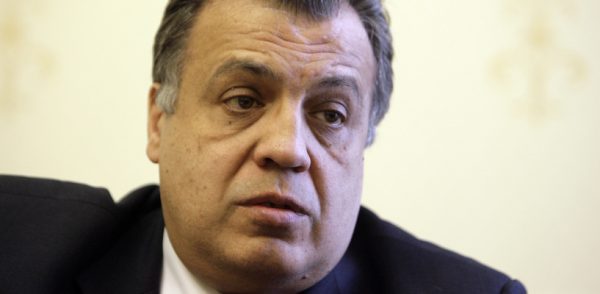“The life of Andrey Gennadyevich [Karlov] ended tragically. He will go down in the history of our Fatherland as a Russian ambassador who died in his post. There are few such people. He will be among such heroes for ever in the history of our people. In human life categories, this death made him immortal,” the patriarch said the funeral service for Karlov held in the Cathedral of Christ the Savior on Thursday.
Several hundred people, including the diplomat’s colleagues and relatives, attended the funeral service.
There is another category, eternal life, in which there is no death, the patriarch said.
“We believe that, through our prayers and especially through his death as a martyr, Andrey Gennadyevich will enter this divine kingdom of glory and the mercy of the merciful God will be upon him,” he said.
The patriarch said he had met with Karlov many times and he was directly involved in the construction of a Russian church in Pyongyang ten years ago, which is the first and the only Christian church in contemporary Pyongyang.
“Andrey Gennadyevich was a person who wholly gave himself to that work. The construction was completed wonderfully with his direct participation, I ordained two Korean priests and parish life was organized,” the patriarch said.
The patriarch said many people have said that the opening of the church had more of “a protocol sense that a really shepherd and spiritual [sense]” and it would not have become a church in the full sense of the word if it had become a place solely for protocol events.
“I told Andrey Gennadyevich about that and he said that, due to his deep religious convictions and the convictions of his wife and many other officials at the Russian embassy in Pyongyang, that church would be a place of prayer under any circumstances. It is noteworthy that one of the first divine services held in that church was the ambassador’s wedding. All those things could not help but produce a big impression on the Korean authorities and the public, the parish began living its life,” the patriarch said.
The patriarch said he had met with Karlov many times after that, including during visits to Turkey.
“I know that he held close to heart the support of Russian Orthodox people living in Turkey, how much he wanted an Orthodox church to be built in Ankara. Why am I emphasizing the construction of churches? Because it shows that the deceased man was a person with a broad outlook on life. He was not a narrow Foreign Ministry specialist, he didn’t just work within the frame of narrow instructions. He understood clearly that relations between Russia and other states need to include a spiritual sphere as well,” the patriarch said.


















